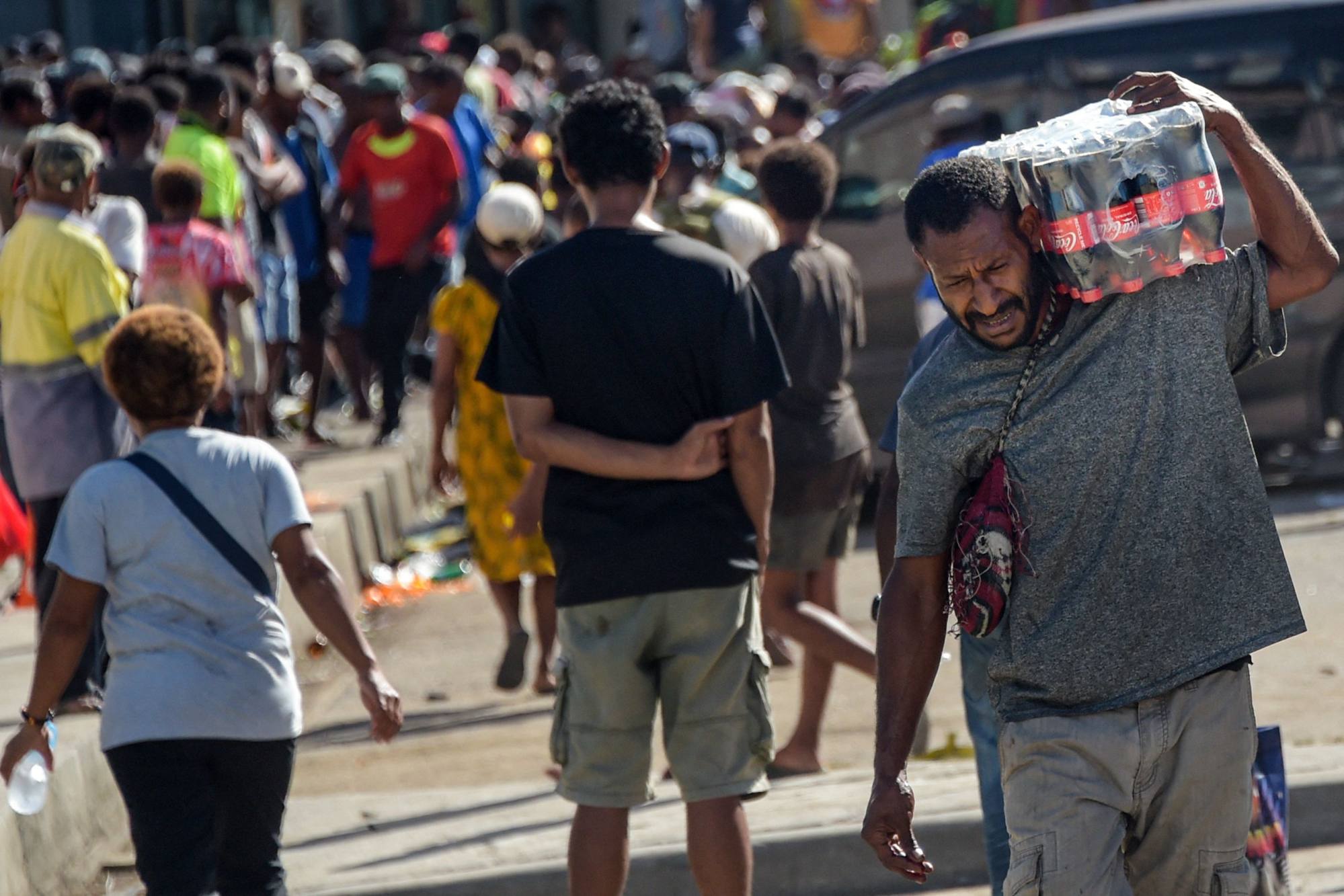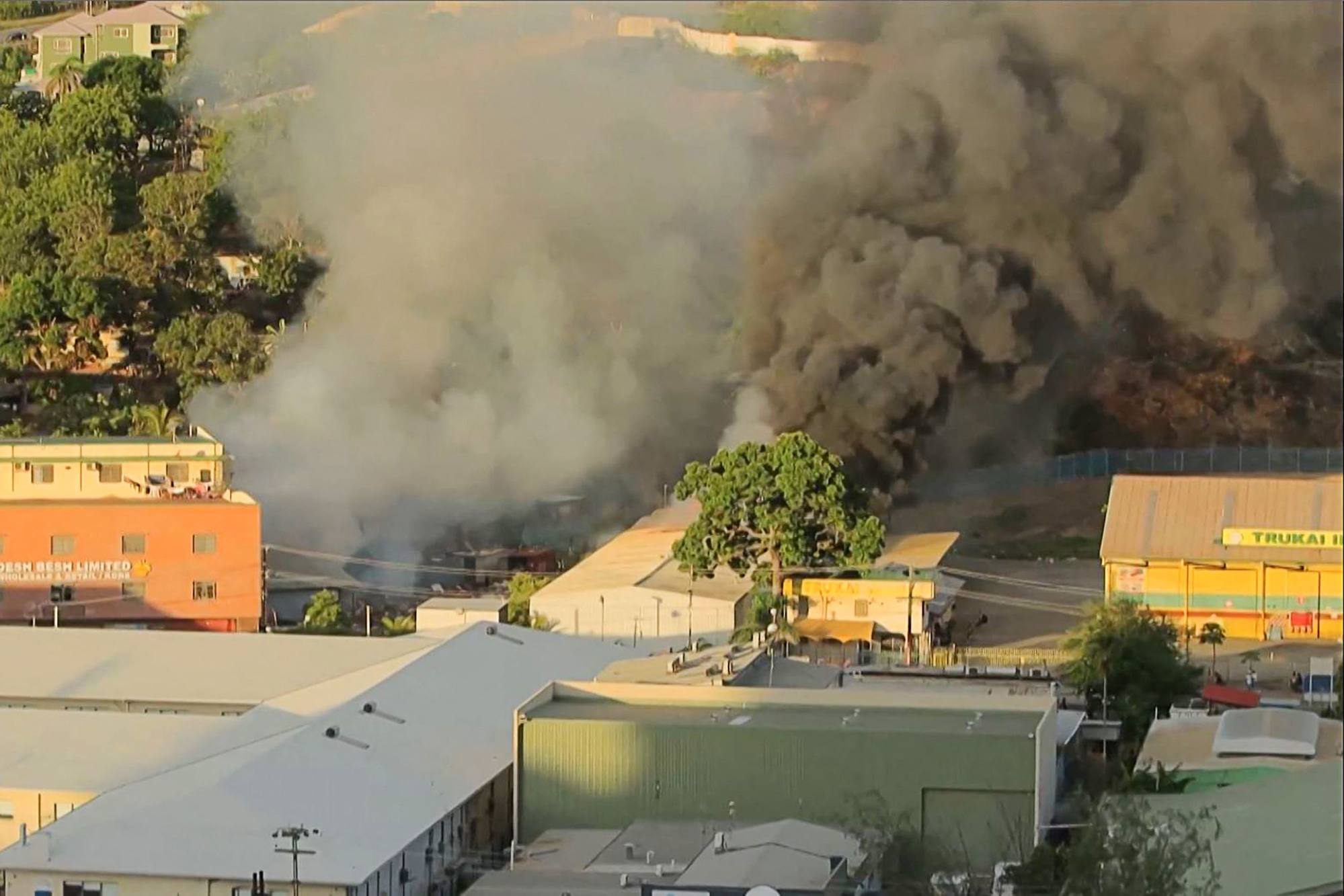China’s embassy in Port Moresby said riots and vandalism had hit a number of Chinese stores and “slightly injuring” several Chinese citizens, Reuters said.
“The Chinese embassy in Papua New Guinea has lodged solemn representations with the Papua New Guinea side over the attacks on the Chinese shops,” the mission said in a statement on WeChat.
It also called on Papua New Guinea to take steps to guarantee the safety of Chinese citizens and businesses, and “severely punish the perpetrators”.
US-China’s Pacific power play to persist after Australia-Papua New Guinea pact
US-China’s Pacific power play to persist after Australia-Papua New Guinea pact
Many of the capital’s residents sheltered in their offices or workplaces overnight instead of going home in fear of gangs who had erected roadblocks and pelted vehicles with stones, as already overstretched police abandoned their posts for a successive night.
“It is so violent that I don’t feel safe going out … I might be stabbed or robbed,” said Steven Gadi, a hotel bartender who slept overnight at his work.
“Today is OK, but tonight we do not know. It is unsettled and not safe. I will most likely stay here another night for safety.”
The government has yet to comment on the death toll, but instead insisted it was on top of the crisis, which on Wednesday night billowed out beyond the capital Port Moresby.
“The situation with the police, defence and civil servants is under control,” Prime Minister Marape told reporters on Thursday, blaming a “computer glitch” for the pay issues.
“We have fixed this and will pay everyone back in the next payroll cycle,” he added of the snag, which appeared to suddenly overtax employees.

The government said the glitch in this year’s first payroll period accidentally added a US$100 tax to police pay cheques.
When employees found out, many took to social media claiming the International Revenue Commission was introducing a shock new tax, sparking the wildcat strike.
As police walked out, widespread looting began with some shopkeepers firing guns to protect their businesses.
Marape asked the army to step in to support other police officers who were flown in from outside the capital to boost security.
Despite the end of the police strike, the US embassy in Port Moresby on Thursday warned Americans to avoid non-essential travel to the island. “Tensions remain high – the relative calm can change at a moment’s notice,” it said in a statement.
The capital remained tense on Thursday, with fear gangs may return after dark to the streets to challenge the police hold on the city.
US troops to access PNG ports, airports in new security pact to counter China
US troops to access PNG ports, airports in new security pact to counter China
Australian Prime Minister Anthony Albanese said the country’s high commission was monitoring the situation, and Canberra had not received any requests for help from Papua New Guinea, which it regularly supports in policing and security.
Rapid urbanisation, high inflation and an itinerant worker population in Port Moresby, a city with a population of 400,000, have led to widespread inequality and unemployment particularly among the young, who instead are pulled towards gangs
“We are facing a crisis where more investment is coming in, but this is not reaching underskilled workers, so we have an income gap to address,” Marape told This Week in Asia, recognising the gang crisis.
Papua New Guinea also suffers from clan warfare and widespread sorcery allegations, which typically target women and are often made during land disputes or when someone dies as grieving family and friends seek violent revenge.
Police are also overstretched, meaning private security is paid to plug the gaps, including for foreign staff of oil and gas companies tapping the country’s natural resources.

“Private security is the largest employer in PNG,” said Dr Michael Main, a consultant with the United States Institute for Peace (USIP) and researcher at Australia National University, who is an expert on Papua New Guinea’s violence.
“Police are often complaining about payment issues. The state has not been good at paying its police and soldiers well, and you end up with all sorts of problems. Police selling their ammunition to warlords is one of them.”
Papua New Guinea is also in the heart of wider global competition for sway over the strategic waters around the Pacific Islands.
Marape has tried to walk a line between Western powers and China, signing security deals last year with the United States and also engaging Beijing economically. An energy expo was held last year in Hong Kong and Papua New Guinea last month opened direct flights between Guangzhou and Port Moresby.

